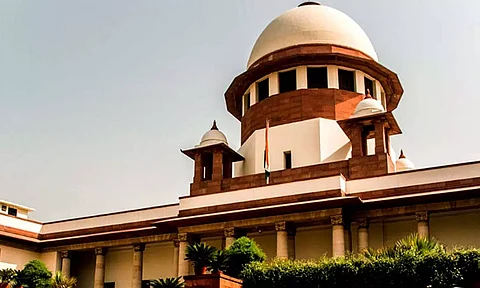

THE SUPREME COURT ON FRIDAY observed that clean air cannot be the privilege of the elite living in Delhi and the National Capital Region (‘NCR’) alone, stressing that people across the country were equally entitled to a pollution-free environment. The Court questioned why the round-the-year ban on the manufacture, sale and bursting of firecrackers was limited to Delhi-NCR and not be extended pan-India.
The observation came from Chief Justice of India B.R. Gavai, heading a bench that also included Justice K. Vinod Chandran, while hearing petitions questioning the blanket ban on firecrackers in the capital region. Petitioners argued that while restrictions during the winter months of October to February were understandable due to higher pollution levels, a year-round prohibition was excessive.
Chief Justice Gavai remarked that the ban could not be confined to Delhi-NCR merely because it is the national capital and the Supreme Court is situated there.
“If citizens living in Delhi-NCR are entitled to pollution-free air, why not in the rest of the country? Just because it is a national capital and the Supreme Court is there?” the CJI asked.
“I was in Amritsar last winter in connection with Gurpurb and the air pollution level in the city was higher than Delhi. Whatever policy has to be there, it has to be on a pan-India basis. We can’t have special treatment for Delhi because they’re elite citizens of the country,” he added, emphasising that if firecrackers are to be banned, the ban must apply nationwide.
Additional Solicitor General Aishwarya Bhati submitted that the issue was not with the elite, who either move out of Delhi during peak pollution or use air purifiers at home or work place.
The bench was hearing an application by the Federation of Fireworks Traders, which has challenged the year-round ban in Delhi-NCR, saying it affects nearly five lakh families dependent on the trade.
“Five lakh families are dependent on this trade. Some way has to be found out. I understand that between October and February, there are pollution concerns, but a complete ban on manufacturing, trading, and selling has a severe impact,” the Federation told the court.
Earlier, on October 23 last year, a Supreme Court bench comprising Justices Abhay S. Oka (since retired), Ahsanuddin Amanullah, and Augustine George Masih had stressed that the right to a clean environment was part of Article 21 of the Constitution.
“Time has come to remind the Union (of India), and both the states (Punjab & Haryana) that there is a fundamental right subsisting with the citizens to live in a pollution-free environment. These are matters of blatant violation of fundamental rights under Article 21,” the bench had said while criticising the Punjab and Haryana governments for failing to act against stubble burning.
“It is just not a violation of orders of the Commission (CAQM) but the government has to answer its own self as to how it is going to protect the citizens’ right to live with dignity and in a pollution-free environment. This litigation is not adversarial and is only litigation for us to ensure that citizens’ rights to live with dignity and clean environment are upheld,” the Court had added.